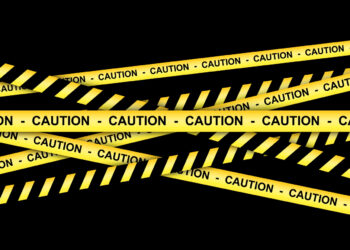At the start of a recent webinar, the moderator invited the panellists to identify the biggest challenge for editors. While my fellow panel members were sharing some diverse, crucial, and lasting (as well as emerging) challenges, I was struck by the geographical aspects of editors’ challenges.
We all understand that the challenges of the editors from the Global South are different from those in the Global North. Or, do we? For example, while the editors and their journal publishers in the North are struggling to address increasing demand for open access by experimenting with different business models, in the South, open access is not an emerging issue since most of society and institutional journals are already Diamond open access journals. Here the challenge is around recognition.
Northern authors don’t frequently publish papers in the Southern journals since these are not indexed by reputed agencies. Many journals from the South are not indexed because they often don’t follow basic publishing standards. This is because the journals’ host learned societies or institutions (or their leadership, to be specific) i) don’t understand or respect the value in maintaining those standards, ii) are frustrated by the rigid and lengthy indexing process maintained by the agencies, or iii) find it easier to publish articles in other “non-national” or so-called “international” journals than to invest in making their so called “local” journals better. Despite all odds, if these Southern editors try to maintain certain publishing standards, they sometimes face opposition from local authors who don’t expect these journals to be very strict with what they publish. This is a dilemma a South Asian journal editor shared while participating in a virtual training program for editors which I facilitated last year.

To overcome these interconnected challenges, the publishing societies, especially editors’ societies with regional chapters, can establish ‘Communities of Practice’ (CoPs) with fellow editors of respective regions and disciplines. The purpose of such CoPs is i) to create a critical mass of editors with improved understanding of the crucial challenges they face across the region, and across the discipline for that matter; ii) to identify good practices to adopt to overcome the identified challenges; and iii) to learn from each other given their similar socio-cultural, economic, even political, backgrounds. Benefits of such CoPs have been useful in different sectors, such as climate change (e.g., in adaptation, research, regional network), biodiversity conservation, and water governance, and could be similarly useful in scholarly publishing. The SDG Publishers Compact Fellows represents a recent, but very active model of CoP from which we can learn. C4DISC (Coalition for Diversity & Inclusion in Scholarly Communications) is also planning to launch a new CoP as a virtual space for peer learning on diversity, equity, inclusion, and accessibility (DEIA) issues in academic publishing.
The editors’ challenges not only depend on where our journals stand within the discipline, or in the publishing ecosystem as a whole, often measured by factors, indexes, or scores, but also where we as editors stand in our respective careers. For the latter, editors’ societies can organize forums to address our concerns and queries, especially if we are early-career editors. If we are experienced editors, the society can utilize our editorial skills, experience, and expertise on evolving issues (e.g., peer review, preprints, and integrity). What may seem like sporadic, opportunistic actions by editors’ societies can in fact lead us to think in a more organized fashion, and can encourage us to prepare a multi-year action plan. While doing so, these societies need to look into three areas.
First, the societies need to look towards their own members. It can start with conducting a needs assessment of the members followed by designing capacity development curricula, accomplished through things like developing tools to perform editorial responsibilities better or by organizing mentoring programs, for example. Many of the publishing societies have one or more of these activities on their annual activity list. But what is often missing is conducting regular impact assessments to check if these events, tools, and programs are making a difference in their members’ lives and careers. Some time back, 12 months after a training that I co-designed and conducted in Bangladesh on research communication, I checked in on the alumni to see how they were doing. And the results were simply amazing for the participants, for the training sponsors, and of course for me.
Second, the editors’ societies need to work with peer scholarly publishing organizations. This may include collaborating with like-minded organizations on issues that are shaping or challenging the publishing industry — artificial intelligence and integrity, open access models, DEIA, paper mills and journal security, and cooperation between for-profit and not-for-profit publishers, for example. The purpose of such collaborations could simply be awareness raising among target groups, as we often see through topic-specific webinars. For example, in November 2022, ALLEA (All European Academies), GYA (The Global Young Academy), and STM Association co-organized a session on DEIA in scholarly peer review. Collaborations could also be attempts to build on activities that peer organizations were doing individually. The EASE (European Association of Science Editors), for example, is organizing a session on leadership and accountability for a sustainable publishing ecosystem at the ISMTE Global Event 2023. This session builds on two relevant dialogues held at the EASE Annual Conference 2021 and the ISMTE Global Event 2022. Collaborations may include relatively long-term engagements among peer societies by building coalitions and consortia (e.g., C4DISC). Cooperation could also lead to timely outputs over a short period of time that are crucial for the industry. In June 2023, for example, the DOAJ (Directory of Open Access Journals) and the OASPA (Open Access Scholarly Publishing Association) lunched the Open Access Journals Toolkit, which was developed by bringing together a diverse group of experts from around the world.
Third, editors’ societies need to look beyond the publishing arena. They need to explore issues, such as sustainability, environmental responsibilities, climate action, building resilience, and reducing north-south divide in scholarly publishing. For the sustainability issue, for example, it’s not just signing the SDG Publishers Compact to contribute to the UN Sustainable Development Goals (SDGs), but also knowing how to keep the promises made. Some new tools are now available to use. For example, the STM Association’s SDGs Academic Publishers Forum, established in 2022, has developed a SDG Forum Toolkit, which will guide the editors and publishers to embrace sustainability approaches.
Similarly, showing resilience to the impacts of certain phenomena beyond our control is also crucial. Such phenomena (i.e., shocks and stresses) may include global economic meltdown, pandemics, civil wars and transnational aggression, natural calamities and climate crisis, and a change in national policies on open access, for example. Here resilience of a system means being able to maintain operations despite external shocks and stresses, as well as being transformed to be able to handle future disasters. Establishing, resourcing, and maintaining CoPs, as mentioned above, could also be useful here by capitalizing on our collective experiences.



